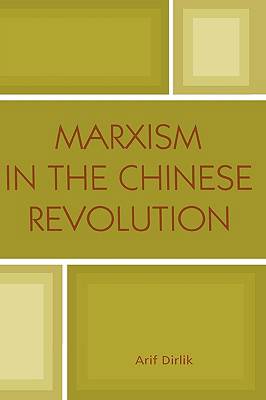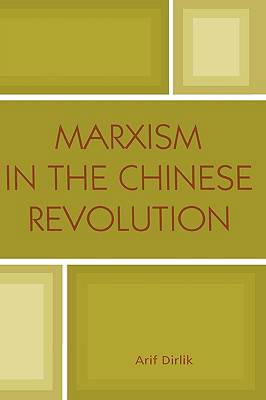
- Afhalen na 1 uur in een winkel met voorraad
- Gratis thuislevering in België vanaf € 30
- Ruim aanbod met 7 miljoen producten
- Afhalen na 1 uur in een winkel met voorraad
- Gratis thuislevering in België vanaf € 30
- Ruim aanbod met 7 miljoen producten
Zoeken
€ 269,95
+ 539 punten
Omschrijving
Representing a lifetime of research and writing by noted historian Arif Dirlik, the essays collected here explore developments in Chinese socialism and the issues that have occupied historians of the Chinese revolution for the past three decades. These incisive essays range from the origins of socialism in the early twentieth century, through the victory of the Communists in mid-century, to the virtual abandonment by century's end of any pretense to a socialist revolutionary project by the leadership of the CCP. All that remains of the revolution in historical hindsight are memories of its failures and misdeeds, but Dirlik retains a critical perspective not just toward the past, but also toward the ideological hegemonies of the present. Taken together, his writings reaffirm the centrality of the revolution to modern Chinese history and the ongoing relevance of Marxism in grasping the flaws of capitalist modernity.
Specificaties
Betrokkenen
- Auteur(s):
- Uitgeverij:
Inhoud
- Aantal bladzijden:
- 342
- Taal:
- Engels
- Reeks:
Eigenschappen
- Productcode (EAN):
- 9780742530690
- Verschijningsdatum:
- 7/06/2005
- Uitvoering:
- Hardcover
- Formaat:
- Genaaid
- Afmetingen:
- 152 mm x 229 mm
- Gewicht:
- 671 g

Alleen bij Standaard Boekhandel
+ 539 punten op je klantenkaart van Standaard Boekhandel
Beoordelingen
We publiceren alleen reviews die voldoen aan de voorwaarden voor reviews. Bekijk onze voorwaarden voor reviews.











